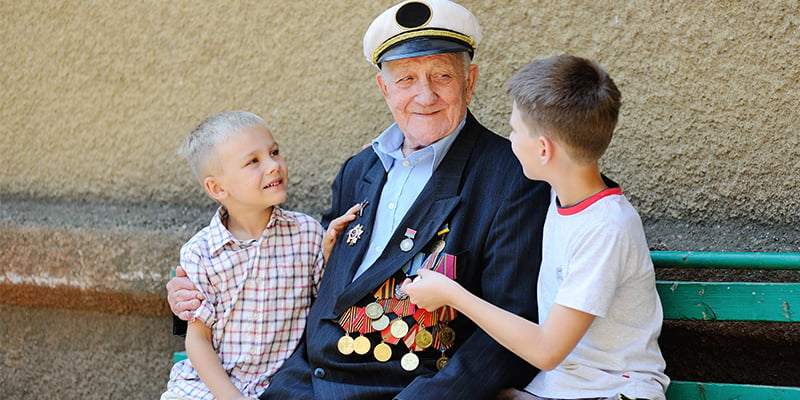
Sometimes the barbecuing and vacationing opportunities presented by a three-day weekend for Memorial Day can distract us from the meaning of the moment, which is to remember with gratitude the sacrifice that millions of our countrymen have made when they died while serving in our nation’s defense. Greater love has no one than this: to lay down one’s life for one’s friends.
Beyond Memorial day, Amen Clinics celebrates the entire month of June as PTSD Awareness month.
In honor of those who have loved us all greatly, we want to focus on new revelations about the brains of combat veterans who suffer from PTSD.
How PTSD Affects Our Veterans
PTSD, or posttraumatic stress disorder, is a severe anxiety disorder following a traumatic event. Symptoms can include flashbacks, nightmares, emotional instability and uncontrollable thoughts about the event. It’s a condition that most of us associate with our veterans, but it doesn’t have to be the war that triggers PTSD. It truly does arise from traumatic events. Some Amen Clinics patients who suffer from PTSD have developed the disorder after a car accident or even a divorce. Trauma can change the brain. It’s a complicated disorder with many influencing factors.
PTSD patterns can be imaged, and many studies have been conducted in an effort to understand the experiences of our veteran population, as well as to find ways to help them through their struggles. Often, study methods involve some kind of brain activity or task that the veterans are made to do. But what about when symptoms arise spontaneously? What about when there doesn’t seem to be a trigger? If a veteran isn’t provoked, but symptoms still manifest, what does that mean? What is going on with the “resting” brain of a combat veteran with PTSD?
A study was published that shows that spontaneous brain activity arises in the brains of those with combat-related PTSD, even when their brains are at rest. Xiaodan Yan, a research fellow at NYU School of Medicine, led the study that took a look at “spontaneous” or “resting” activity in the brains of 104 veterans of combat in the Iraq and Afghanistan wars. Their measurement tool of choice was functional MRI, which measures blood-oxygen levels in the brain. Yan and his team discovered spontaneous brain activity in the amygdala, deep in the temporal lobes, involved with emotional responsiveness. The activity in that region of the brain was significantly higher in the 52 combat veterans with PTSD than in the 52 combat veterans without PTSD.
How Amen Clinics Can Help Treat PTSD
At the Amen Clinics, we often we see temporal lobe abnormalities in patients who demonstrate chronic irritability and anger. The significance of this NYU study is its focus on spontaneous brain activity. The subjects were not put through experiences, made to look at aggravating photos or asked to do tasks to get their brains moving. It turns out, you don’t have to get the brain of a PTSD-suffering vet moving – it gets moving all by itself! No wonder they suffer from inexplicable, spontaneous and seemingly irrational upwellings of anxiety, anger, and fear.
Neuroimaging tools provide an objective measure of PTSD, which will lead to better treatment and more support for those who are suffering. Thank you, veterans, for your many sacrifices.
Amen Clinics knows that PTSD is a serious condition and we understand you may need professional help. Emotional traumas are surprisingly common, but help is available. Contact Amen Clinics today at 888-288-9834 or visit our website to schedule a visit.





I read in Men’s Journal that VR has been used quite well for treating PTSD, Brain Trauma, pain relief / management, and other things for quite some time, but very few doctors use it. With VR becoming so wide spread these days, will more be done to use such a device to treat patients with these issues?
Comment by Terry Swift — June 13, 2017 @ 8:22 AM